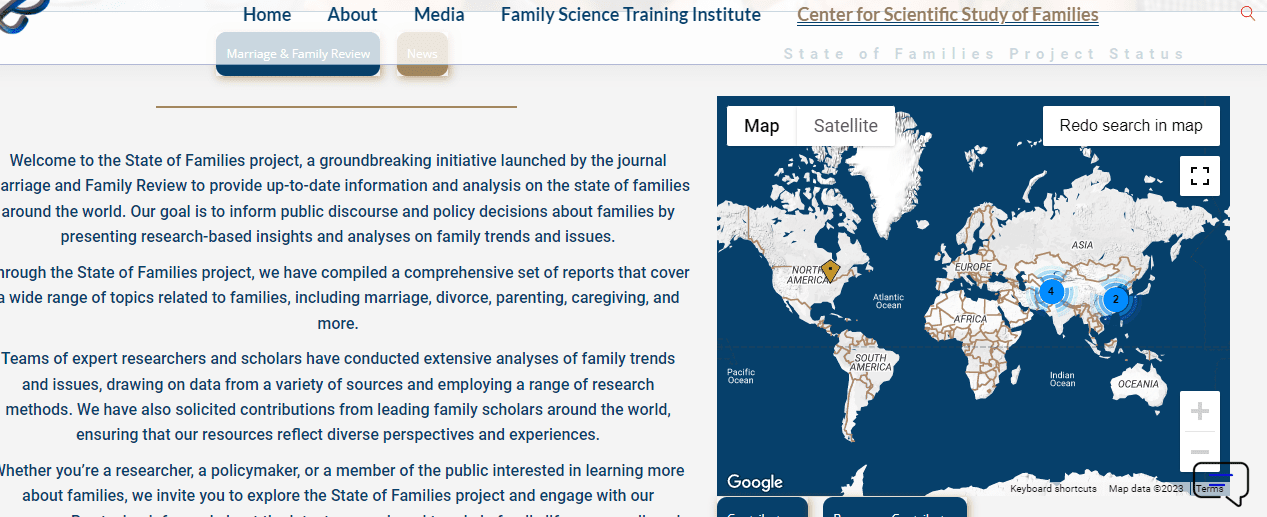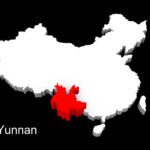Family science research
Step 1: Select a geographic location of interest for the program of study
The first step is to select a geographic location of interest for the program of study. This could be a city, county, state, region, or country. When selecting a geographic location, it is important to consider the following factors:
- Is there a need for family science research in this region? Are there specific family issues, topics, or concerns that warrant further study?
- Are there resources available to support family science research in this region? This could include funding, access to data, and collaborations with other researchers.
- Is the researcher familiar with the region and its culture? This will help to ensure that the research is culturally sensitive and relevant to the needs of the community.
Step 2: Select a defined group of families to study in that region
Once a geographic location has been selected, the next step is to select a defined group of families to study in that region. This could be done based on a variety of factors, such as family structure, income level, race/ethnicity, or age of children. When selecting a defined group of families, it is important to consider the following factors:
- Is the group of families representative of the region? The goal is to select a group of families and gather data about them that is as representative of the region as possible.
Step 3: Determine if that geographic region has the infrastructure to regularly study its families
The next step is to determine if the geographic region of interest has the infrastructure to regularly study its families. This could be a state or local government agency, a university research center, a nonprofit organization, etc. If there is an existing infrastructure in place, the researcher should contact them to learn more about their work and to see if there are opportunities for collaboration or to gain access to the data to generate reports that can allow families in that region to be represented in the State of Families project.
- If yes, determine how families are studied in that region and for what reasons they are studied.
- If not, determine if the group of families is accessible to the researcher? The researcher should be able to access the group of families and collect data from them. If the group of families is willing to participate in the research, the researcher should obtain informed consent from the families before conducting any research.
If the geographic region of interest has the infrastructure to regularly study its families, the researcher should determine how families are studied in that region and for what reasons they are studied. This information can be obtained by reviewing the work of other researchers in the region or by contacting the organization that is responsible for conducting the research.
Using the State of Families Project to Build a Record of Scholarship on Families in a Defined Geographic Region
The State of Families (SoF) project is a valuable resource for family scientists who are interested in building a record of scholarship on families by systematically studying specific families in a defined geographic region. The SoF project aims to catalog the conditional state of families in a defined global location to broaden the understanding of families in context. This can be historical, contemporary, or for making future predictions about families in the region. The vision of the SoF project is to build a database of reports on the conditional state of families that can be used by stakeholders of family science literature to precisely identify trends and patterns in family structures and/or processes.
To use the SoF project to build a record of scholarship on families in a defined geographic region, family scientists can:
- Use the SoF project reports to understand families in their region. The SoF project can be used to study a wide range of family-related topics, such as child development, parenting, and family relationships.
- Compare families in their region to families in other regions of the country. The SoF project data can be used to compare families in terms of their demographics, characteristics, and outcomes.
- The SoF project provides the ability to track changes in family structure and/or dynamics in their region over time. The SoF project can be used to track changes in family structure, demographics, and well-being over time.
- The SoF project can be used to develop and maintain collaborative family science networks to refine the systematic study of families across global locations. The SoF project can help family scientists connect with other researchers who are interested in studying given topics or regions, particularly families.
The SoF project is a valuable resource for family scientists who are interested in building a record of scholarship on families in a defined geographic region. By providing researchers with access to data, training, and resources, the SoF project helps to improve our understanding of families and to develop policies and programs to support them.
Conclusion
Developing and maintaining a family science program of research can be challenging, but it is also rewarding. By following the steps outlined above, family scientists can use the State of Families project to build a record of scholarship on families in a defined geographic region. This research can be used to improve the lives of families in the community and inform public policy, practice, and research.
If you are interested in being part of the project, please send a meeting request to [email protected].





